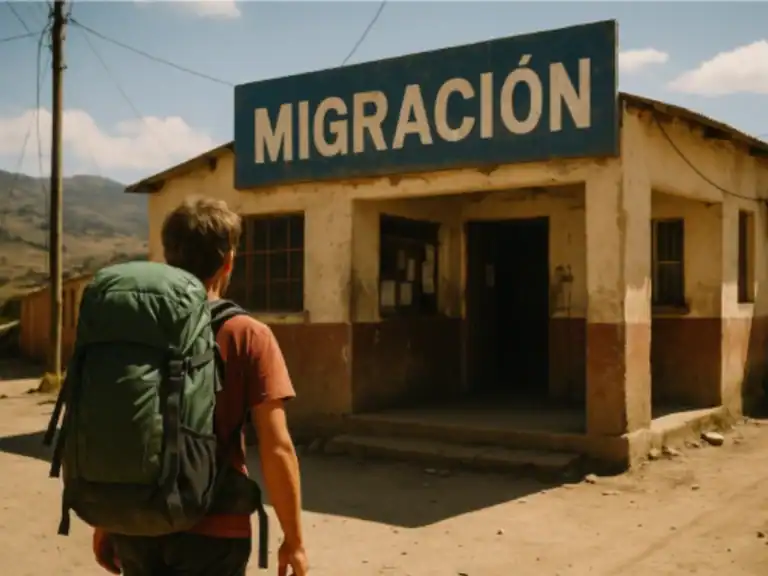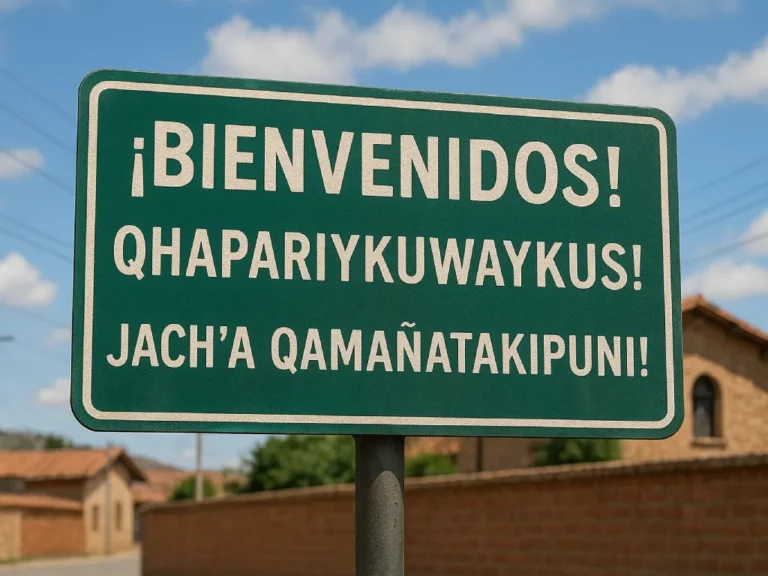Is Bolivia a Good Place to Live in 2025? Here’s What It’s Actually Like

When I came back from my long South America stint, I had a couple people back home ask me is Bolivia a good place to live? the answer isn’t a simple yes or no. It really depends on what you’re looking for. If you want modern infrastructure, Amazon Prime deliveries & an easy visa process, Bolivia’s going to test your patience. But if you’re after affordability, epic scenery, rich culture & a slower pace of life, then you might just fall for it completely.
I spent enough time bouncing around the country to get a decent feel for what day-to-day life could look like – the good, the weird & the bits no one really warns you about.
Since writing this piece, I’ve chatted with a few others who’ve stayed long-term & their experiences echo a lot of what I’ve seen – especially around the cost of living & general tempo. These small changes have now been included!
In brief: Bolivia offers unbeatable affordability & culture, but comes with bureaucratic hurdles & patchy infrastructure – perfect if you crave authenticity over convenience.
Cost of Living: Major Win
This is where Bolivia genuinely shines. It’s easily one of the most affordable countries in South America. Rent, food, public transport, even private healthcare – all way cheaper than you’d expect.
In places like Sucre or Cochabamba, you can live fairly comfortably on £600–800 a month (around $750–1000 or €700–950). A one-bed apartment might set you back £200–300, & eating out regularly won’t blow the budget.
Wondering how much money do you need to live comfortably in Bolivia? In most Bolivian cities, the figures above can get you a decent life – rent, food, transport & extras included. If you’re happy shopping local & avoiding luxury imports, your budget stretches even further.
Supermarkets can be hit & miss, but local markets are the way to go. You’ll get a bag full of fresh produce for the price of a London flat white. I covered what I actually spent in a separate post on how cheap Bolivia is to travel – spoiler: your money goes far.
Fun Fact:
In some Bolivian cities, the average taxi fare is under £1 for a 10-minute ride. Even long-distance buses rarely top £10.

What About Safety?
Bolivia feels safer than a lot of places in the region. Violent crime is rare, especially if you avoid dodgy late-night walks in big cities. Pickpocketing does happen, especially in La Paz or at bus terminals (had this one attempted on me), but if you’re switched on, you’ll be fine.
La Paz also happens to be where Bolivia’s wildest thrill lives – I wrote up my Death Road bike tour if you’re half-thinking of giving it a go. Safety in general here goes a bit out the window when you’re cycling down the side of a cliff…
Back on track though, I’ve written way more on how safe Bolivia is for tourists, but the same stuff applies if you’re sticking around longer. Common sense goes a long way.
Is Bolivia a safe place to live long term?
Generally yes – most expats feel safe living in Bolivia, especially in quieter cities like Sucre or Cochabamba. Violent crime is low, though petty theft & dodgy taxis in bigger cities like La Paz still happen. Keep street smarts switched on & you’ll likely be fine.
Is Bolivia safe for expats?
This answer also covers the “Is Bolivia safe for foreigners” one I also get, same deal!
For the most part – yes. Most expats I met (and chatted to after) felt safe living in Bolivia, especially in mellow cities like Sucre or Cochabamba. Violent crime is rare, and the risks are more about the usual suspects – dodgy taxis, pickpockets, or the odd scam in bus terminals. Big cities like La Paz need a bit more street savvy, but the vibe is way calmer than places like Lima or São Paulo.
The key difference as an expat? You’ve got time to learn the safe zones, get comfy with your neighbourhood & find your rhythm. Safety improves once you’re settled – and a bit of Spanish helps a tonne.
The Bureaucracy Is… a Lot
If you’re planning to live in Bolivia long term, be prepared to wrestle with some paperwork. Visa extensions, residence permits, bank accounts – it all exists in a kind of slow-motion dance between rules that aren’t written down & random fees that seem to vary depending on who you talk to. Here’s the initial general gov.uk advice on the matter just to get you started off.
If you’re patient & ideally speak some Spanish, you’ll get there. But it’s not seamless.
Healthcare: Not Fancy, But Functional
Bolivia has both public & private healthcare systems. Public hospitals can be crowded & under-resourced, but private clinics are surprisingly affordable & well equipped in bigger cities.
A consultation might cost around £10–20, & you can often see a doctor the same day. Just don’t expect slick hospital apps or seamless booking systems.
The systems aren’t perfect, but they work in their own way. I’ve written more about Bolivia’s economy here & how that shows up day to day. For the American readers, here’s a link to the CDC’s take on traveller health in Bolivia too! (P.s. I did initially try to spell “traveller” with one “L” but just couldn’t bring my English self to do it).
Internet & Remote Work?
Getting better, but still patchy. In cities like La Paz, Sucre & Santa Cruz, fibre internet is a thing, but speeds vary & outages are pretty common.
If you’re planning to work remotely, it’s doable. I’m a wannabe digital nomad myself & met a few digital nomads making it work, but you’ll want a backup plan (local SIM, coworking space, café with decent Wi-Fi) just in case. I’d recommend a reliable data plan as the Wi-Fi you find out and about really isn’t the most reliable. My Internet in Bolivia article goes into this in much greater depth!
For those looking around employment opportunities, On the jobs front, formal jobs are hard to come by but online gigs or teaching English are common routes in!
Language: Spanish Helps (A Lot)
English isn’t widely spoken outside of tourist zones. If you’re moving here, even just basic Spanish will make life so much easier – not just for admin, but for making mates, buying veggies, or understanding why the guy at the pharmacy is giving you dog antibiotics.
When I wrote my book on the Backpackers Guide to Central America, I put in a whole section just on Spanish as it’s that important! As my old maths teacher used to say “numbers are your friends”, never proved more true, especially with bartering!
In fact, this aspect is so important to knowledge up on, I wrote a separate article on the languages spoken in Bolivia. I’ve also written about why Bolivia has two capitals, which sums up quite a bit about the country – fascinating, a bit confusing, & not always what you expect.
If you’re keen, Sucre’s actually a popular place to learn. Loads of affordable Spanish schools, and it’s a chilled, easy-to-navigate city.
Culture, Nature & Daily Life
This is the part that really sells it. Bolivia’s full of festivals, traditions & regional quirks. No two cities feel quite the same. You’ll find everything from jungle heat to alpine chill, all without leaving the country, more on that in my ‘What is the Climate in Bolivia‘ article.
Some things take getting used to – stray dogs, traffic chaos, odd opening hours – but the pace of life can be lovely. And that pace? It shows up in everything from food to national symbols – if you’re curious what the Bolivian flag actually represents, it’s worth a gander.
It’s slow in the best way. You’ll see families eating ice cream in the square at night, kids playing football in the streets, & fruit sellers chatting for hours on end (I was obsessed with fruit sellers and their carefree pace of life, so much so that I included them as the title pic in no less than 2 of my Bolivia articles!)
From market empanadas to big plates of silpancho, the food’s one of the joys of living here. I wrote up my favourite Bolivian dishes if you’re curious. If you’re just planning a shorter stay & want to squeeze the most in, I’d also recommend my Bolivia backpacking itinerary for that exact reason – meals included (obviously).
Fun Fact:
Bolivia has 37 official languages, though Spanish is by far the most widely spoken. Aymara & Quechua are common in the highlands and signage often includes multiple scripts.

What are the pros and cons of living in Bolivia?
Living in Bolivia is a bit of a trade-off. Pros? It’s cheap, culturally rich, naturally stunning (just reference the Bolivian Altiplano) & refreshingly slow-paced. But cons include bureaucratic headaches, patchy infrastructure & tricky remote work conditions. If you’re adaptable & a little patient, though, it can be brilliant.
So… Is Bolivia a Good Place to Live?
If you’re looking for somewhere cheap, culturally rich, naturally beautiful & far from the overdeveloped chaos of big cities elsewhere (like me running away from London), then yes – Bolivia can be a brilliant place to live. And if you want a more detailed list of all things Bolivia, check out my Guide to Exploring Bolivia.
It’s not perfect. The systems are slow, the Wi-Fi’s temperamental, & you might find yourself explaining your visa status at least once a month. But the trade-off is a country where life feels real, community matters, & your budget goes a long way.
If you’re after a starting point, Sucre or Cochabamba are two of the best cities to test the waters – decent infrastructure, lower altitude, friendly vibe. Santa Cruz has a more modern edge. La Paz is a full-on experience, but it’s naturally where the action is. Depending on the season, different parts of the country can feel totally different – I’ve also broken that down in my guide to the best time of year to visit Bolivia.
If you’re more of a planner (or you just like your hikes with a guide), I’ve put together my top Bolivia tours & experiences – from salt flats to steamy jungles, all tried & tested.
Happy Travels!






